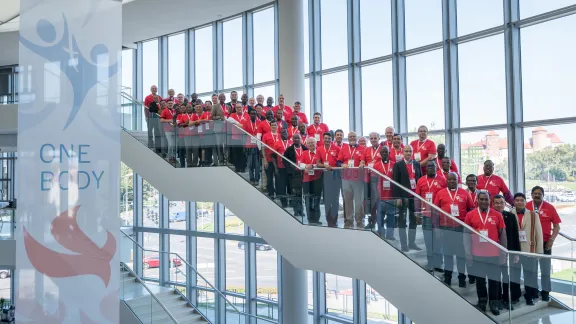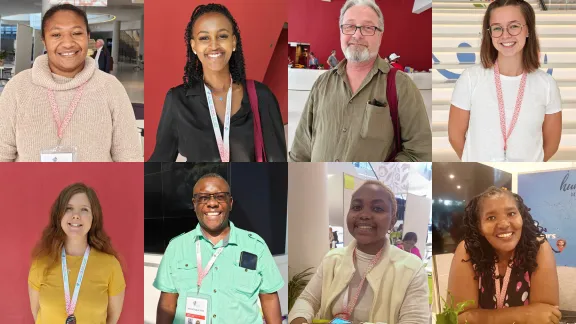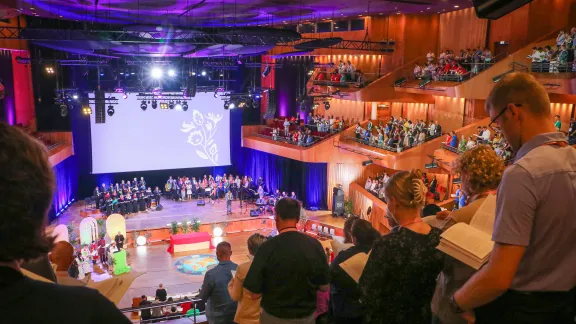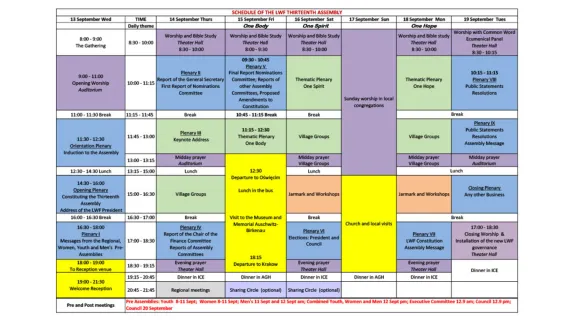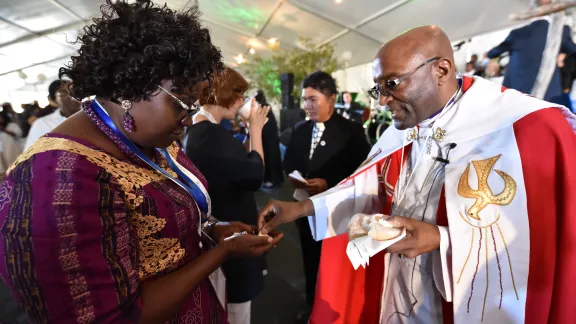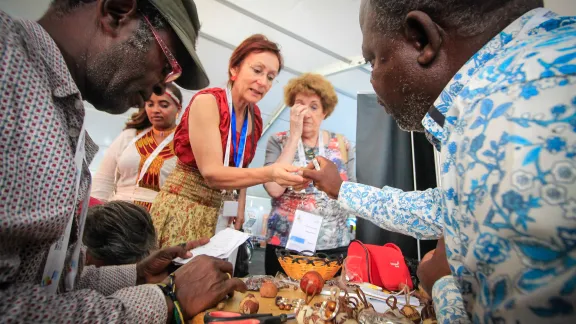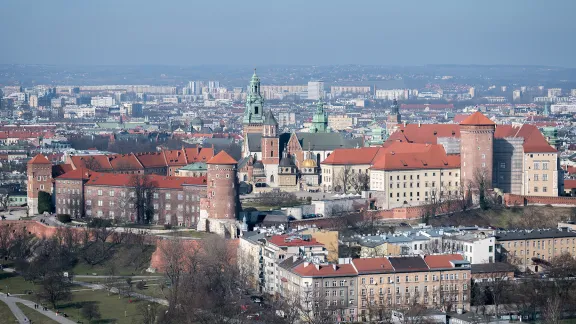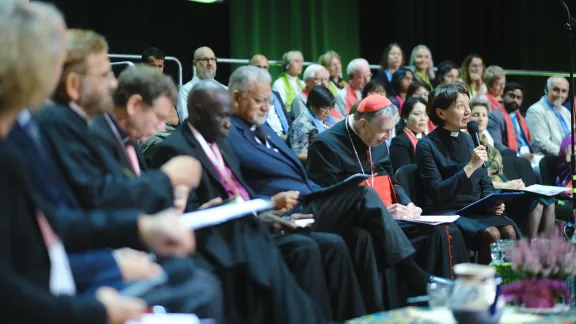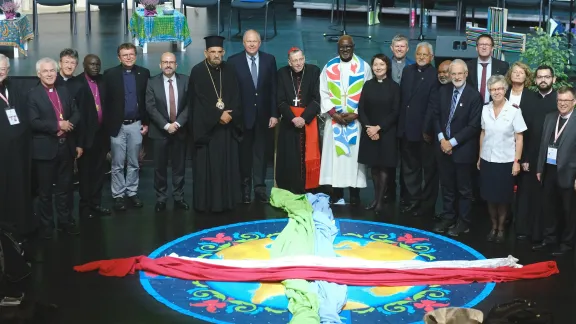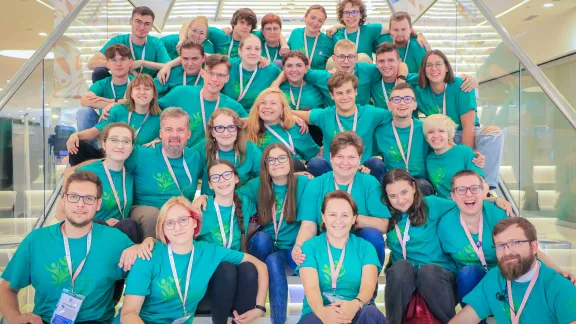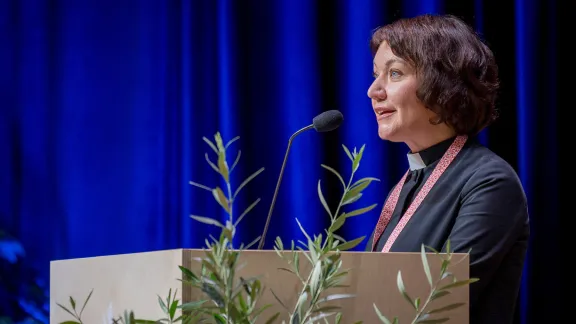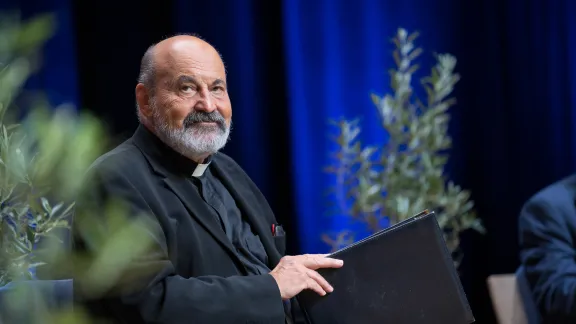13 SEP 2023
Archbishop Musa urges churches to practice respectful listening and to be beacons of hope in fragmented world
(LWI) - The Lutheran World Federation (LWF) President Archbishop Dr Panti Filibus Musa urged delegates at the opening of the Thirteenth Assembly in Kraków, Poland, to “hold onto unity and hope in our common journey as [a] communion of churches.” In a world “crowded with diverse voices and the risk of division,” he insisted, churches must continue to practice “respectful listening” to remain beacons “of hope amidst complexity, uncertainty and changing ideologies.”
“One Body, One Spirit, One Hope,” is the theme of the Assembly hosted by the Evangelical Church of the Augsburg Confession in Poland (ECACP). Addressing the opening plenary session of the 13 to 19 September gathering, the outgoing president looked back at challenges faced by churches since the last Assembly in Windhoek, Namibia, in 2017. He spoke about the disruption caused by the COVID-19 pandemic, remembering all those who died, but also recalling the solidarity and resilience shown by member churches and by the LWF as an organization.
In a divided and fragmented world, he said, “supporting one another, worshipping together” as well as “serving the world together” are “signs of our communion and its vibrancy amid the many challenges we face.” This vibrancy was evident when the LWF was founded in the wake of the Second World War, he noted, and it remains vital as churches continue to respond to the call “to support people in need and work for peace and reconciliation” in today’s world.
Our task is to discern and nurture this unity, witnessing to the liberating grace of God.
LWF President Archbishop Dr Panti Filibus Musa
President Musa talked about the “turbulent history” of Poland and in particular the Lutheran communities which have lived through “times of flourishing and times of oppression.” Noting that the Evangelical Church of the Augsburg Confession in Poland makes up just 0.1 percent of the population, he stressed that “our communion has never been about numbers” but about “faithful witness to Christ.” Churches facing declining memberships in other parts of the globe, he said, can be enriched by the minority experiences of the host church.
Musa, who is the Archbishop of the Lutheran Church of Christ in Nigeria, reflected on the meaning of being a global communion, with members drawn from so many countries, cultures, ethnicities and Lutheran traditions, “with many different experiences and sensibilities.” Yet through “the immeasurable riches of God’s grace,” he affirmed, “we have been brought together to be “co-participants in the One Spirit to God’s plan of reconciliation.”
Over the coming days, Musa continued, Assembly delegates will be focusing on what he called “essential, deep-down unity and the hope that it inspires.” This unity “is not uniformity or compliance or compromise,” but rather it is the work of the One Spirit “that is always creating, reconciling, renewing.” Our task, he added “is to discern and nurture this unity, witnessing [….] to the liberating grace of God.”
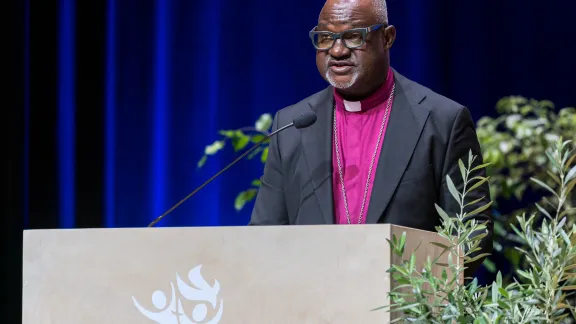
LWF President Archbishop Dr Panti Filibus Musa delivers the President's address as Lutherans from around the globe gather for the Lutheran World Federation (LWF) Thirteenth Assembly, held in Krakow, Poland on 13-19 September 2023 under the theme of ’One Body, One Spirit, One Hope’. Photo: LWF/Albin Hillert
Responding to challenges, comprehending God's call
The archbishop offered some striking examples of the vibrancy of LWF’s work that he has witnessed firsthand, including visits to World Service programs in northern Cameroon. He welcomed the work to affirm women in leadership, noting the growing number of churches ordaining women to ministry. “But we must do better,” he said, urging member churches to not waver or retreat in their commitment to women’s leadership.
Speaking of the importance of prioritizing young people and their leadership at all levels of church life, Musa said the LWF remains committed to ensuring 20 percent of youth participation, but the goal of youth empowerment, leadership and inclusion will only be realized when member churches commit to this in their local contexts. “My hope is that more will take steps in that direction,” he stressed.
Other challenges that Musa addressed included the urgency of responding to the climate crisis, peacebuilding, the work of strengthening dialogue and practical cooperation with other Christian world communions and the need to counteract misleading theologies through discussions, formation and theological education.
After thanking all those who have supported him over the past six years, the LWF leader reiterated his call to the churches to remain united and mutually accountable to one another as they look ahead to the 500th anniversary of the Augsburg Confession in 2030. “A divided church risks losing its impact,” he said, while “a united body can offer guidance” and hope. He concluded: “Our unity rests on genuine and respectful conversation,” through which “we deepen our comprehension of God’s call and our role in a fragmented and suffering world.”

